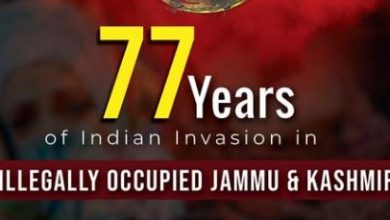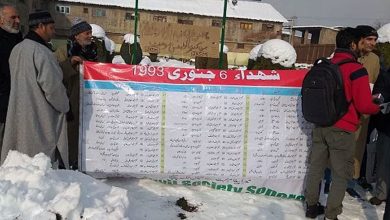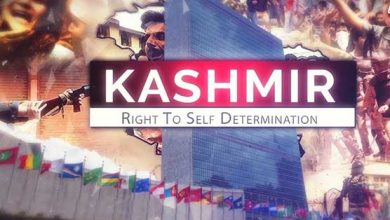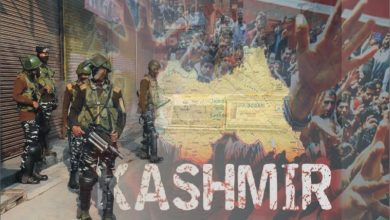Article: Militarization and Human Rights Violations Fueling the Narcotics Crisis in IOJK
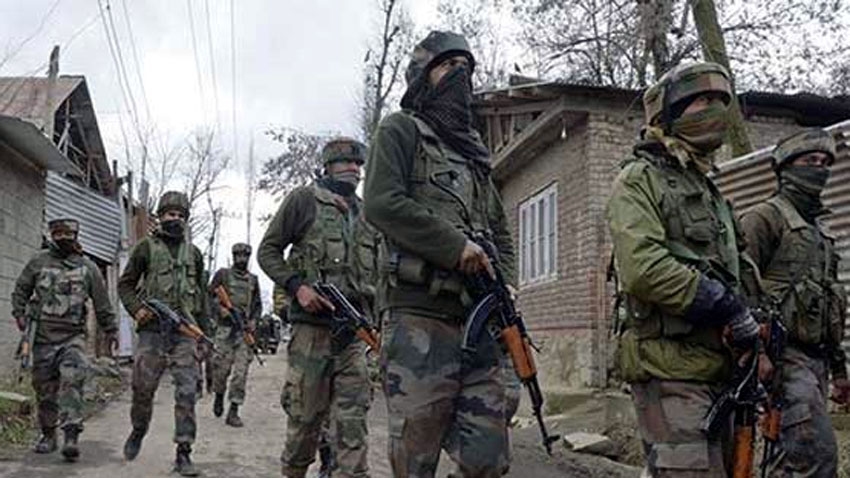
Altaf Hussain Wani
The rising narcotics crisis in Indian-Occupied Jammu and Kashmir (IOJK) is a major concern. The region, marked by conflict and instability, has become a hub for drug trafficking and abuse. This crisis has serious consequences, particularly for the youth, leading to health problems, economic struggles, and social breakdown. International treaties like the 1961 Single Convention on Narcotic Drugs and the 1988 UN Convention Against Illicit Drug Trafficking aim to tackle such issues, but enforcement remains weak in conflict zones like IOJK.
The Indian military and paramilitary forces have been conducting operations in Kashmir since 1989 to suppress the freedom movement. These operations often involved excessive force, resulting in innocent deaths and human rights violations. Peaceful protesters were met with live ammunition, leading to killings, arrests, and torture. During search operations, abuses such as extrajudicial killings, enforced disappearances, mass rape, and property destruction were reported, causing long-term psychological trauma.There has been no accountability for these abuses.
The Armed Forces (Special Powers) Act (AFSPA), enforced in 1990, gives armed forces immunity from prosecution. Since then, the Indian government has refused to allow prosecution of security personnel in civilian courts. This lack of accountability has only deepened the suffering of the people of IOJK, contributing to the cycle of violence and despair.
The numbers paint a grim picture. According to the Ministry of Social Justice and Empowerment, approximately 10 lakh residents in Jammu and Kashmir were drug addicts in 2019-20, accounting for 8% of the population of 1.25 crore. Among them, 5,34,000 men and 8,000 women consumed opioids, while 1,08,000 men and 36,000 women were cannabis users.
Alarmingly, the use of heroin and other synthetic opioids has surged, with facilities like the Addiction Treatment Facility (ATF) at Kulgam district hospital reporting 813 patients with opioid addiction in late 2021. Neighboring Islamabad district saw 1,154 patients seeking treatment for heroin addiction in 2022 alone. By 2023, the parliamentary standing committee estimated that 1.35 million people in the region were drug users, a staggering figure that underscores the severity of the crisis.
The roots of this crisis lie in the unrelenting militarization and occupation of IIOJK. With over 700,000 troops stationed in the region, it remains one of the most militarized zones in the world. Daily life is punctuated by military operations, crackdowns and curfews, leaving residents in a perpetual state of fear and uncertainty. For the youth, this militarized environment raises a sense of alienation, despair and powerlessness. The lack of political freedom, coupled with the absence of meaningful economic opportunities, pushes many into a cycle of hopelessness.
This despair finds a dangerous outlet in narcotics. Drugs, particularly heroin, offer a temporary escape from the harsh realities of occupation. The psychological toll of living under constant surveillance and violence has led to high rates of depression, anxiety and post-traumatic stress disorder (PTSD).
According to the Institute of Mental Health and Neurosciences (IMHANS) in Srinagar, the mean age for first use of cannabis is 17.25 years in Srinagar and 18-32 years in other districts, indicating that addiction begins at a young age.Drug use is not evenly distributed across IIOJK but varies by district.
Baramulla and Kulgam have the highest number of opioid users, while Shopian reports the most extensive drug networks. For women, Budgam ranks the highest in reported drug use. In Islamabad, the mean age for first use of pharmaceutical opioids is just 19.61 years. These figures highlight the alarming reach of the narcotics crisis and its disproportionate impact on the younger population.
The heroin epidemic in IIOJK carries a deadly secondary crisis: the spread of bloodborne diseases like hepatitis C. Intravenous drug use, coupled with a lack of awareness and inadequate healthcare facilities, has contributed to a surge in infections. Unfortunately, the social stigma surrounding drug addiction often prevents individuals from seeking treatment. Even those who do face an under-equipped and understaffed healthcare system, where facilities struggle to meet the growing demand for de-addiction counseling and rehabilitation services.
The human cost of the narcotics crisis in IIOJK is immense. Beyond the statistical data lies a generation struggling to cope with the compounded effects of conflict, occupation and addiction. The lack of access to education, meaningful employment and mental health support has created a perfect storm for drug abuse.Doctors and counselors in the region face an uphill battle. The dearth of de-addiction centers means that many individuals cannot access the help they need. For those who do, the journey to recovery is fraught with challenges, including limited resources and societal judgment. The medical community in IIOJK warns that the fate of an entire generation hangs in the balance.
The narcotics crisis in IIOJK requires a clear and focused plan.First, the root causes of addiction must be tackled. This includes addressing the political and economic disenfranchisement that fuels despair and hopelessness.
A peaceful resolution to the conflict is essential to create an environment where young people can envision a future free from violence and occupation.Second, there must be a concerted effort to strengthen healthcare infrastructure. De-addiction centers need to be established across all districts, with specialized services for vulnerable groups like women and youth.
Training programs for medical professionals and counselors should be prioritized to address the unique challenges of addiction in a conflict zone.Finally, international cooperation is crucial to curb drug trafficking. The enforcement of international treaties, such as the 1988 UN Convention Against Illicit Traffic in Narcotic Drugs, must be strengthened.
The rising narcotics crisis in Indian-Occupied Jammu and Kashmir is a symptom of deeper systemic issues rooted in militarization, occupation and political oppression. The staggering number of drug users in the region is not just a statistic but a reflection of the despair and hopelessness that pervades the lives of its people. Without urgent action, the future of an entire generation remains at risk, caught in the crossfire of conflict and addiction.
(Write is Chairman of Kashmir Institute of International Relations and can be reached @ saleeemwani@hotmail.com and via X @sultan1913)





